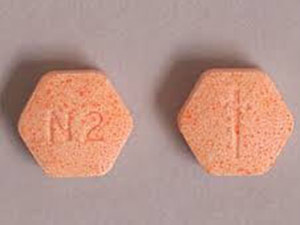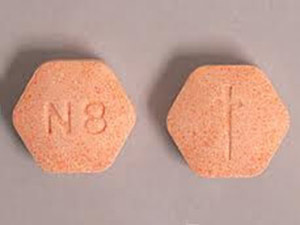Showing all 2 results
What is Suboxone?
Suboxone is an opioid pain medication available in different forms such as sublingual tablets, buccal films, etc., that affects your brain and nervous system to treat opioid dependence and moderate to severe pain.
Important Information
- Always remember that using Suboxone is only a part of treatment; follow your doctor’s advice to make the medication more effective.
- You may need frequent blood and liver function tests while using Suboxone.
- Keep Suboxone in your custody at the suggested atmospheric condition and dispose of all the leftover medicine once done with the treatment.
- Sudden withdrawal of Suboxone can be fatal. Please consult your doctor before leaving it; your doctor will gradually decrease your medicine dose to avoid withdrawal symptoms.
- You can either buy the medicine online or offline, provided that you should have a proper prescription from a doctor. It is because buying or selling without an appropriate prescription is not permitted under the law, and authorities may hold you liable for punishment if you do so.
What to know before taking Suboxone?
Suboxone is a highly addictive and habit-forming opioid pain medication that can be dangerous for your health if you have not taken care of certain precautions as advised by your doctor.
Moreover, you should also consider the following things before initiating your treatment with Suboxone:
- Taking Suboxone is not advisable if you are allergic to it or any of its components or similar medicines.
- Please don’t take Suboxone if you have the following health disorders or history thereof:
- Sleep apnea (breathing that stops while sleeping) or other breathing disorders
- Difficulty while urinating
- Enlarged prostate
- Liver disease
- Kidney disorder
- Abnormal curvature in the spine that affects your breathing
- Thyroid disorder
- Problems in the functioning of the gallbladder and pancreas
- Brain tumor or head injuries
- Seizures
- Avoid taking Suboxone if you are an alcoholic or drug addict.
- Suboxone is not safe to use during pregnancy or lactation period; it can harm your child and make your child dependent on the drug. It can also cause some congenital disabilities to the newborn.
- Please consult your doctor to learn more about the risks and benefits of the medicine and ask your doctor about all other necessary precautions that you should take while using Suboxone.
How to take Suboxone?
Using Suboxone sublingual tablets or buccal films might not be that simple as using any oral tablets. You are required to consult your health expert to know how to use them correctly.
It is an opioid pain medication that affects the brain and nervous system and can adversely affect your health if taken inappropriately.
Please consult your health expert before taking it and follow all the necessary instructions and directions while taking medicine, and talk to your doctor if you don’t feel any improvement in your health condition.
Suboxone dosages
Suboxone contains two highly addictive opioid drugs such as buprenorphine and naloxone, making it the first-choice treatment when other opioid pain medications become ineffective or not working that well.
However, you are required to consult your doctor for suitable Suboxone dosages to ensure that the medication you are using is safe and effective. You can easily get the medicine online or offline and use it as prescribed by your doctor.
Your doctor will initiate your pain treatment with the medicine’s minimum possible dose and gradually adjust your medicine dose as and when required. To determine the best suitable dosages for you, your doctor should examine you thoroughly. Your doctor will recommend Suboxone dosage keeping the following factors in mind:
- Age of the patient
- Weight of the patient
- The medical condition of the patient
The following are the usual Suboxone dosage that your doctor can prescribe you:
Dosage for treating opioid dependence
In the form of buccal film
Initial treatment
- For adults
Day 1
0.7 mg of naloxone and 4.2 mg of buprenorphine twice or thrice a day
Day 2
8.4 mg of buprenorphine with 1.4 mg of naloxone once a day.
- For children
Using Suboxone for treating patients younger than 18 years might not be safe.
In the form of sublingual film
Initial treatment
- For adults
Day 1
2 mg naloxone and 8 mg buprenorphine in multiple dosages
Day 2
16 mg of buprenorphine and 1.4 mg once a day.
- For children
Using Suboxone for treating patients younger than 18 years is not safe.
In the form of sublingual tablets
Initial treatment
- For adults
Day 1
1.4 mg of naloxone and 5.7 mg of buprenorphine twice or thrice a day
Day 2
11.4 mg of buprenorphine with 2.9 mg of naloxone once a day.
- For children
Using Suboxone for treating patients younger than 18 years is safe.
Overdose
Suboxone overdose may happen if you have taken medicine in excess or used it without consulting your doctor. You probably know that Suboxone overdose can be dangerous and may cause you the following Overdose symptoms:
- Dizziness or drowsiness
- Pinpoint pupils
- Breathlessness
Ignoring these fatal overdose symptoms is not what we advise. You should consult your doctor if you need any medical assistance. You can also seek emergency medical help by calling the poison helpline at 1-909-509-4050.
What to avoid while using Suboxone?
Alcohol can dangerously interact with Suboxone and may cause death; please avoid taking them together.
Taking Suboxone will make you feel dizzy or drowsy as your thought process might be impaired; therefore, you should avoid driving and performing activities that can cause you severe injuries or accidents.
Avoid taking herbal products, vitamins, and other nutritional supplements simultaneously with Suboxone. They can dangerously interact with the medicine.
Suboxone side effects
Suboxone affects your brain and nervous system and may cause you the following side effects:
- Dizziness or drowsiness
- Blurred vision
- Concentration issues
- Opioid withdrawal symptoms
- Pain in the tongue
- Numbness or redness in the mouth
- Nausea or vomiting
- Constipation
- Headache
- Pain in the back
- Fast and pounding heartbeats
- Unusual sweating
- Sleeplessness
Although it is obvious to experience these mild side effects after using Suboxone, you should not worry too much about them unless they bother you too much. However, please consult your doctor if these mild side effects are unbearable and causing you too much trouble.
Please stop taking Suboxone and seek emergency medical assistance ASAP if you experience the following health issues while taking Suboxone:
- Slow and shallow breathing
- Sleep apnea (breathing that stops while sleeping)
- Lightheadedness
- Confusion or disorientation
- Weakness
- Blurred vision
- Slurred speech
- Opioid withdrawal symptoms such as shivering, goosebumps, increased sweating, feeling hot or cold, runny nose, watery eyes, diarrhea, muscular pain
- Any other allergic reaction to the medicine
What drugs can interact with Suboxone?
Being an opioid pain medication, Suboxone can dangerously interact with the following medicines and can deteriorate your health even more:
- Cold and allergy medications
- Water pills or diuretic
- Medicines to treat asthma, chronic obstructive pulmonary disorder (COPD), and other breathing disorders
- Opioid pain medication
- Sedatives
- Sleeping pills
- Muscles relaxant
- Medicines used to treat mood and behavioral disorders or other mental illnesses
- Stimulants
- Antidepressants
- Drugs used to treat Parkinson’s disease and migraine headache
- Medication used for treating motion sickness, irritable bowel syndrome, or overactive bladder
The interaction of these medicines with Suboxone can be detrimental to your health; therefore, we advise you to tell your doctor about all the medications or therapies you are taking before starting your Suboxone dosage.
Moreover; it is also advisable to tell your doctor if you are taking the following medicines simultaneously with Suboxone:
- Antibiotics
- Antifungal medications
- Heart medicines
- Medications used for maintaining blood pressure level
- Antiseizure or anticonvulsant drugs
- Medicine to treat HIV or hepatitis C
- Other over-the-counter medicines


